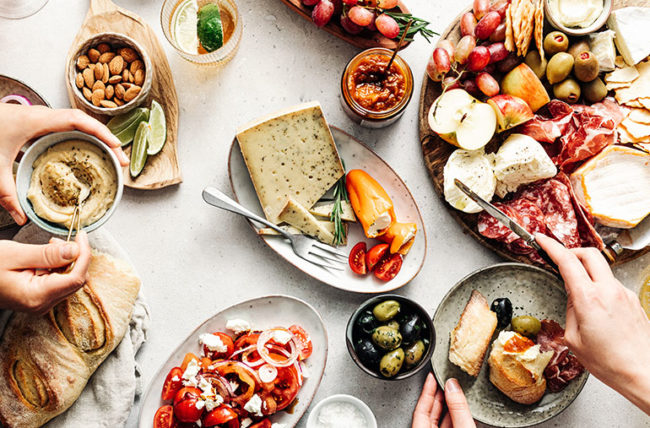Could A Poor Diet Put You More at Risk of Coronavirus?


These months of confinement have been difficult for everyone, from emotional stress and anxiety to learning new ways to coexist with our loved ones who are in lockdown. Not to mention our diets.
When we’re at home, we’re more inclined to turn to the refrigerator to relieve tension and worry. And, if we’re not careful, this could be harmful to more than just our waistlines.
A bad diet has a negative impact on all aspects of one’s health and well-being, from heart health to blood sugar levels to how one feels. But there’s one aspect about which we’re particularly concerned right now: our bodies’ ability to fight sickness.
Is it true, however, that a bad diet makes you more susceptible to the coronavirus? Can eating healthy, on the other hand, safeguard you?
Let’s see what we can find out.
How does your diet affect your health?

If you eat too much poor food, your health will suffer. Isn’t it straightforward? But what is ‘bad food,’ why is it harmful to you, and what does it actually do to your body?
Food that is bad for your health is referred to as “bad food.” For instance, consider the following:
- Cola and other sugary drinks
- Takeaways, pizzas (not including handmade), fried dishes, and other fast food are examples.
- Breakfast cereals with added sugar
- Bread made of white flour
- Pastries in large quantities
- Sweets
- White chocolate is a delicious treat.
- Foods that have been heavily processed
- Red meat in large quantities
So, why are these products bad for you?
Each of them has a distinct effect on your health, forcing your body to work harder (and in a negative way) to metabolize it for energy. Consuming a lot of sugar, for example, can produce a jump in blood glucose levels, whereas others can push your calorie intake above the daily suggested limits or contain other goods that are dangerous to your health.
If you eat too many of these, you risk developing:
- Diabetes
- Cardiovascular Disease
- Blood pressure that is too high
- Obesity
- And, maybe most crucially, a weakened immune system.
Why does what you eat affect your immune system?
A bad diet, particularly one high in sugar, stops your immune system from performing to its full potential, putting you at greater risk of disease. Furthermore, it impairs the body’s ability to fight infections caused by foreign bacteria and viruses. A weaker immuno-response, in other words.
All of this means you’ll be less prepared to deal with any viral attacks that come your way. Conversely, consuming nutritious, healthy foods aids your body’s ability to fight infection. Filling your diet with nutrient-dense foods like fruits and vegetables, lentils, and other legumes, for example, will give it the best potential boost.
What’s the connection with coronavirus?

Now that we know that food has an effect on your immune system, let’s look at some examples. What does this signify for the coronavirus and your body?
COVID-19 is currently surrounded by a lot of uncertainty. So, while we can’t say for certain that what you eat affects your ability to fight the virus, there are signs that it does.
The percentage of persons who are metabolically healthy in the United States now is only 12%. This refers to persons who are not only not overweight but also have normal-range results on medical tests such as general blood analysis, blood pressure, blood sugar, cholesterol, and so on.
Those who do not are at a higher risk of developing medical illnesses such as heart disease, diabetes, stroke, and other disorders that are thought to be risk factors for coronavirus death rates.
Ill metabolic health is now considered the major cause of poor health in the United States, and it is a significant concern that extends beyond COVID-19. This suggests that a balanced diet is critical not only during coronavirus outbreaks but also for your overall health.
What other factors can impact my immune system?
Now, while eating is vital, it isn’t enough to keep your immune system healthy. Instead, you should take a holistic approach to your health.
Poor sleep

Your body is hard at work restoring itself as you drift off into the land of nod. The immune system releases cytokine, a protective molecule that aids in body repair, during rest. When you don’t get enough sleep, your immune system is weakened, making you more susceptible to infections and making it more difficult to fight them off.






